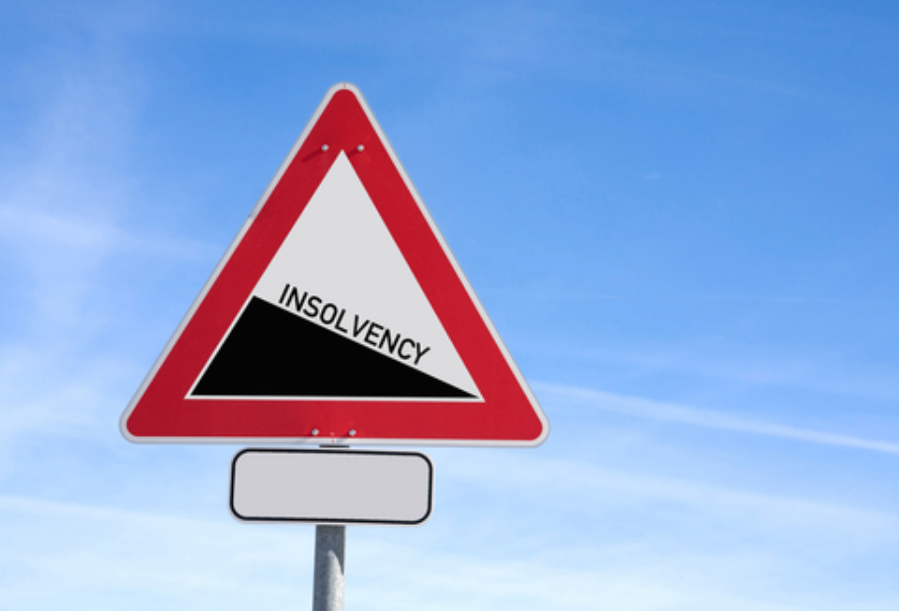
Most directors of any kind of businesses will have to face, some time in their careers, the warning signs when a business begins to struggle. When the pressure is on, cash is the most important commodity, but sometimes it just there isn’t enough cash to pay the bills on time. As a director of a limited company you need to be sure that you are not carrying on trading when the company is insolvent.
There are several debt solutions available if you are insolvent as each insolvency solution is different and has its own qualifying criteria. It is therefore advisable to look for intervention agencies, such as MGJL that can help you with financial recovery. What are some of the most FAQs that can help one deal with insolvency ?
What is insolvency?
Insolvency is when you can’t afford to pay back your debts at the time they’re due. In simple terms, this is where an individual, partnership or company cannot pay their debts as they fall due, or have liabilities of a higher level than the value of their assets.
What is an insolvency practitioner?
An insolvency practitioner is an individual qualified, licensed and authorised to act in relation to formal insolvency processes defined in the Insolvency Act 1986
When do SME’s tend to seek advice from an Insolvency Practitioner?
- When they have the inability to find funding to solve cash flow issues. This can be a problem, particularly if a director / directors is not willing to provide personal guarantees.
- A major customer going into a formal insolvency process or start using a competitor.
- A change in regulation impacting on margins.
- HM Revenue & Customs investigations leading to historic debt that cannot be repaid.
- When a time to pay arrangement cannot be met, and will not be re-negotiated.
- When an SME does not have a long enough trading history to put in place working capital finance to move the company forward.
- Health and Safety Breach leading to large unexpected fines.
- The loss of long-term litigation leading to substantial costs orders against the company.
- Overtrading.
- Internal fraud leading to cash flow difficulties.
- The ill health / death of a key employee / directors of the company.
- Poor management of company funds.
- A failure to adapt to a changing marketplace.
- Competitors willing to undercut.
- Ill-conceived or poorly thought out business plans.
- Directors or shareholders that are no longer willing to support the company financially.
How many of these factors do you think are avoidable?
With planning, the majority of these factors are avoidable but some are not because when the company seeks help it is usually too late.
What is your number one piece of advice that would you give new businesses owners in order to avoid insolvency?
Have a viable business plan, failing to plan is planning to fail, and ensure you take appropriate professional advice early if you think there may be a problem around the corner, the earlier you take the advice the more options there are likely to be available to resolve matters.
On average how long does the insolvency process take?
It is very much dependent on the circumstances an individual, partnership or company find themselves in, complex matters may take a number of years, other matters may be resolved in less than 12 months.
When should a company begin to think about an insolvency process?
This depends on circumstances, but the key is to obtain professional advice early, which should increase the chances of avoiding formal insolvency proceedings if at all possible. This will also provide more options, choices, and control.
What happens to the money owed to creditors when going into insolvency?
Dealing with creditors is handed over to a licensed insolvency practitioner who will agree on claims, realise assets and distribute funds after costs. When a formal insolvency process has commenced, creditors are notified and will receive a dividend if sufficient funds are realised from the sale of company assets.
What happens to my staff and their wages owed when going into insolvency?
In some situations, it might be possible to transfer staff to another business under ‘TUPE’ regulations. If this is the case the business taking over the staff will be liable for any wages owed and other commitments of an employee’s contract. It might happen though that staff may be made redundant with or without notice, in which case they would need to make a claim with the Redundancy Payments Office, who will pay wages and other employee entitlements up to a statutory limit.
How do I begin the insolvency process?
You should look for and then book a meeting with a licensed insolvency practitioner.
Will personal items of mine be at risk? (home, car etc..)
If you are an individual or partnership, yes there is a risk, if you are a business with limited liability status, your personal assets should be protected unless you have given some form of personal guarantee.
After liquidation can I still run a business? Will my record as a director be affected?
Even though you have been involved in a liquidation is no bar to you running a business or starting up a new limited company. It will be evident from searches at Companies House that you have been involved in a liquidation, however only if a director becomes disqualified, for wrongdoing prior to a liquidation, would your ability to run a limited company be affected.
How will I pay for the insolvency practitioners fees?
Normally, the assets of a company or individual’s estate will cover the fees charged by an insolvency practitioner.
When will my director responsibilities end?
On the liquidation of a company a director’s responsibilities for the company will cease, however, directors will still have an obligation to cooperate with any appointed insolvency practitioner.

IntelligentHQ Your New Business Network.
IntelligentHQ is a Business network and an expert source for finance, capital markets and intelligence for thousands of global business professionals, startups, and companies.
We exist at the point of intersection between technology, social media, finance and innovation.
IntelligentHQ leverages innovation and scale of social digital technology, analytics, news and distribution to create an unparalleled, full digital medium and social business network spectrum.
IntelligentHQ is working hard, to become a trusted, and indispensable source of business news and analytics, within financial services and its associated supply chains and ecosystems.





























